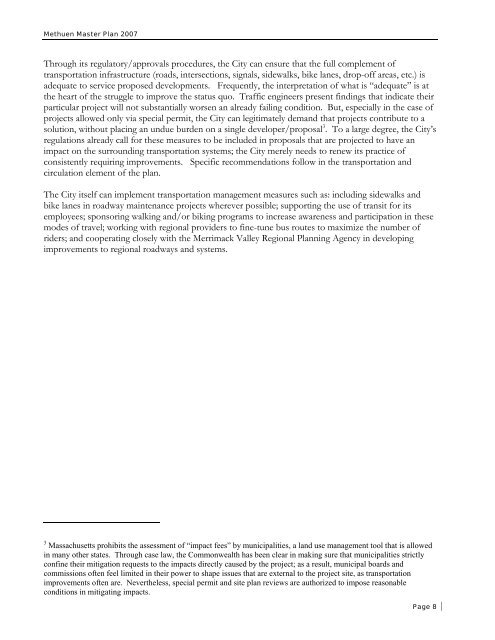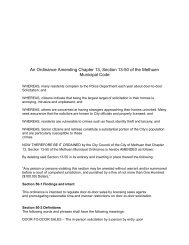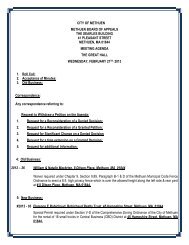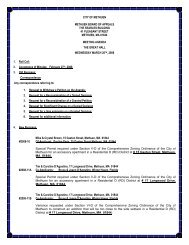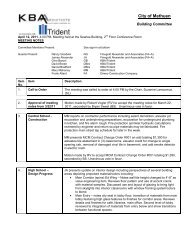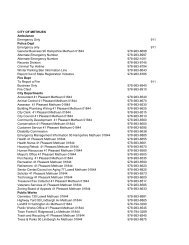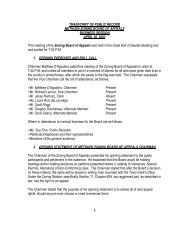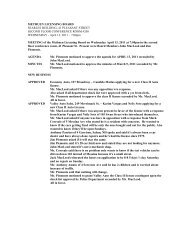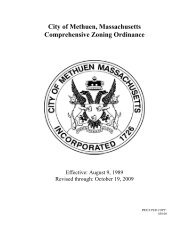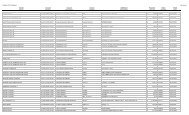City of Methuen Master Plan
City of Methuen Master Plan
City of Methuen Master Plan
You also want an ePaper? Increase the reach of your titles
YUMPU automatically turns print PDFs into web optimized ePapers that Google loves.
<strong>Methuen</strong> <strong>Master</strong> <strong>Plan</strong> 2007<br />
Through its regulatory/approvals procedures, the <strong>City</strong> can ensure that the full complement <strong>of</strong><br />
transportation infrastructure (roads, intersections, signals, sidewalks, bike lanes, drop-<strong>of</strong>f areas, etc.) is<br />
adequate to service proposed developments. Frequently, the interpretation <strong>of</strong> what is “adequate” is at<br />
the heart <strong>of</strong> the struggle to improve the status quo. Traffic engineers present findings that indicate their<br />
particular project will not substantially worsen an already failing condition. But, especially in the case <strong>of</strong><br />
projects allowed only via special permit, the <strong>City</strong> can legitimately demand that projects contribute to a<br />
solution, without placing an undue burden on a single developer/proposal 3 . To a large degree, the <strong>City</strong>’s<br />
regulations already call for these measures to be included in proposals that are projected to have an<br />
impact on the surrounding transportation systems; the <strong>City</strong> merely needs to renew its practice <strong>of</strong><br />
consistently requiring improvements. Specific recommendations follow in the transportation and<br />
circulation element <strong>of</strong> the plan.<br />
The <strong>City</strong> itself can implement transportation management measures such as: including sidewalks and<br />
bike lanes in roadway maintenance projects wherever possible; supporting the use <strong>of</strong> transit for its<br />
employees; sponsoring walking and/or biking programs to increase awareness and participation in these<br />
modes <strong>of</strong> travel; working with regional providers to fine-tune bus routes to maximize the number <strong>of</strong><br />
riders; and cooperating closely with the Merrimack Valley Regional <strong>Plan</strong>ning Agency in developing<br />
improvements to regional roadways and systems.<br />
3 Massachusetts prohibits the assessment <strong>of</strong> “impact fees” by municipalities, a land use management tool that is allowed<br />
in many other states. Through case law, the Commonwealth has been clear in making sure that municipalities strictly<br />
confine their mitigation requests to the impacts directly caused by the project; as a result, municipal boards and<br />
commissions <strong>of</strong>ten feel limited in their power to shape issues that are external to the project site, as transportation<br />
improvements <strong>of</strong>ten are. Nevertheless, special permit and site plan reviews are authorized to impose reasonable<br />
conditions in mitigating impacts.<br />
Page 8


